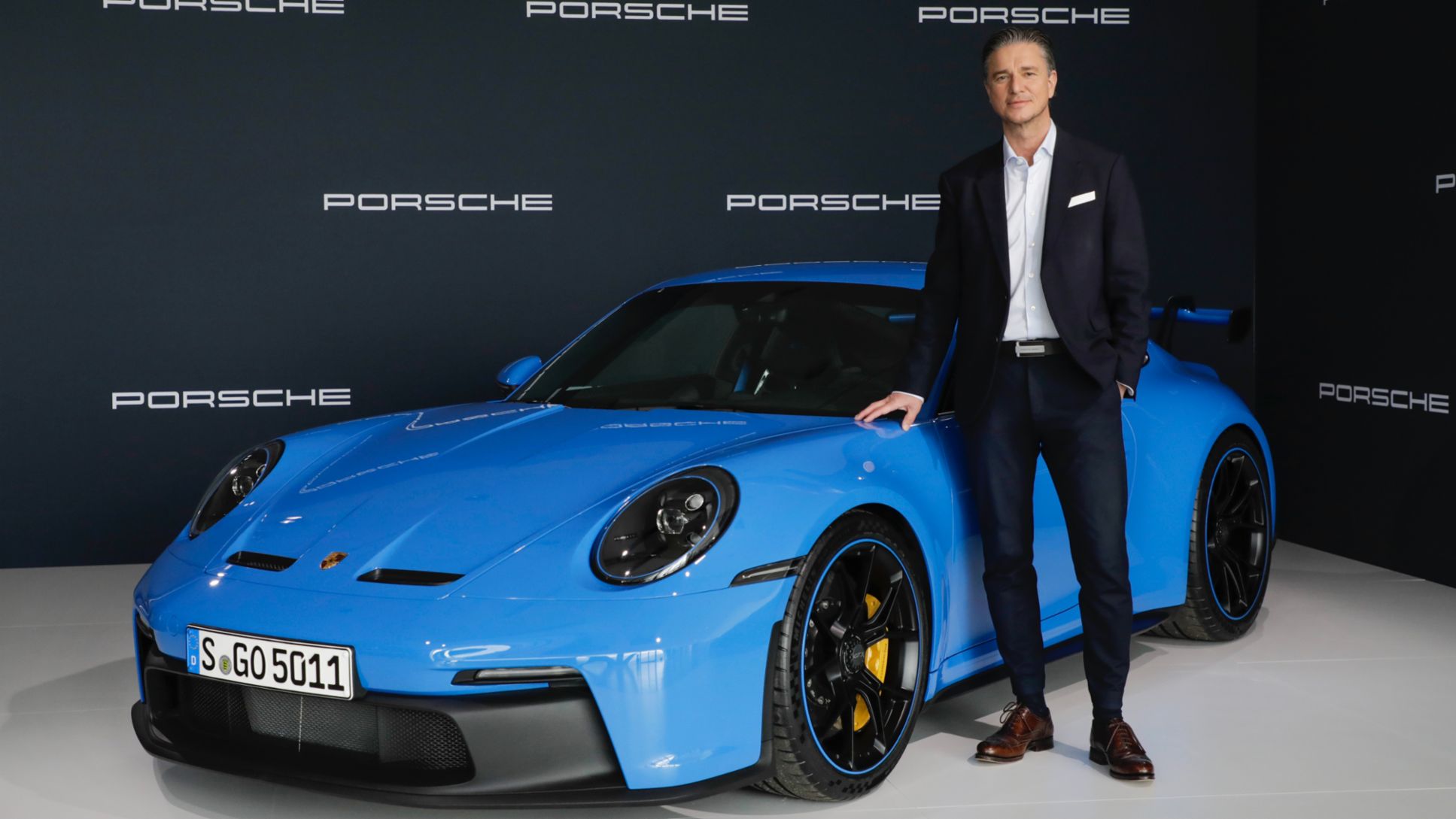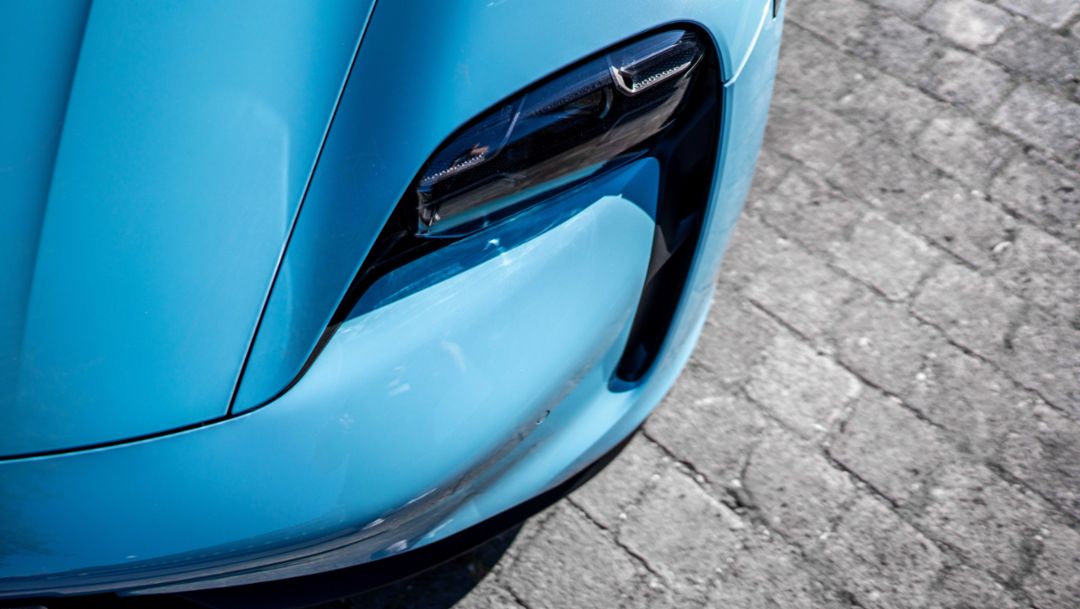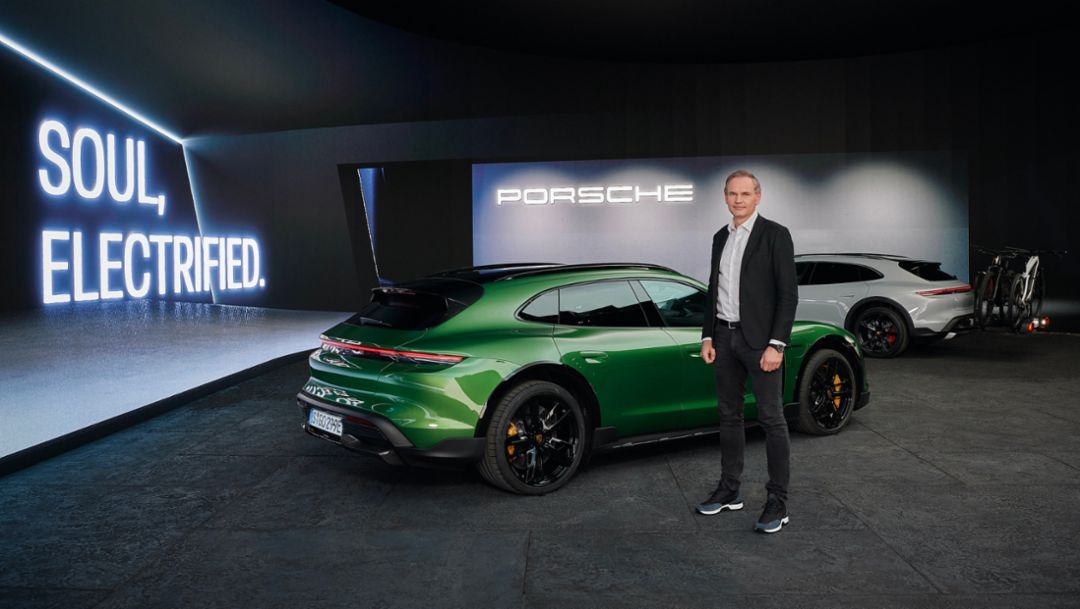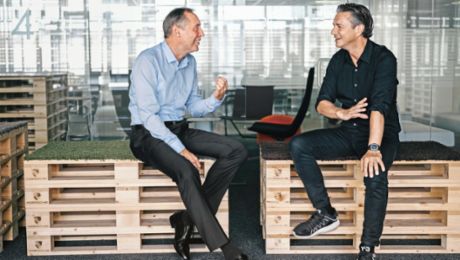Lutz Meschke, the Deputy Chairman of the Executive Board and Member of the Executive Board for Finance and IT at Porsche, has also chaired the Supervisory Board of the Leipzig Graduate School of Management (HHL) since earlier this year. In a current online message to HHL alumni, many of whom have gone on to take up management roles, he appeals to them to voice their opposition of the populist enemies of democracy more clearly.
Mr Meschke, are German managers too quiet?
Lutz Meschke: I wish that managers would contribute much more often and more boldly in public discussions. We are living in times where our democracy, and therefore our rule of law, are subject to increasing criticism. In this case, people should raise their voices and stand up for our values. Democratic processes may perhaps be cumbersome at times, and naturally I don’t agree with every decision either, but for me, democracy with social responsibility is the best political system by far. It goes without saying that no-one should be left behind. Anyone in Germany who claims that they are living in a dictatorship, and that the system should be abolished, is just giving vent to their frustration. Instead, it is time to take on responsibility. The federal election takes place in five months and I appeal to all citizens to vote and not to let themselves be taken in by populists and conspiracy theorists who offer seemingly simple solutions and who want to silence all those who do not agree with them.
Why do managers have to take on more responsibility – more than they already do as citizens?
Meschke: First of all, my wish is that many more people in general take a clear position. Unfortunately, it is usually the case that a small minority dominates discussions but only because they are louder or better organised. Here, the silent or quiet majority must offer opposition with fact-based arguments. And this is where managers or key players should serve as role models. Naturally, this could also include personalities from sport or other areas. Top managers in global companies have a quite different perspective: they are active globally, while states tend to have a more local focus. It therefore makes sense if company representatives increasingly take on responsibility. They have an insight into other systems and states and have contact every day with a large number people of many different origins, from all possible professional groups and from many social classes. This does not mean that managers are automatically democratically legitimate opinion leaders – but it does mean that their work involves integrating a wide range of ideas, backgrounds and opinions. Why should large companies therefore not also make a contribution to global discussions? I would go as far as to say that they must do so.
Do company bosses have to take the risk of alienating their customers?
Meschke: I see it like this: those who communicate their values and make an active contribution to society will also have a stable customer base. It is important to show the values a company stands for and what values the manager has. There are scientific studies that show that a growing number of employees like to hear such clear statements from their bosses and that they increasingly expect them. In the first analysed cases this also applies in a similar way to customers. Interestingly, it is younger people, such as millennials, who expect managers to actively and publicly contribute to their political environment – instead of allowing themselves to just drift along. There is plenty of movement in this area. And it’s a good thing.
The topics of populists are interchangeable to a certain extent: refugees, climate change, coronavirus, for example. What is your opinion?
Meschke: For all half-reasonable people there are, in principle, no doubts when it comes to the topics of coronavirus and climate change – even if discussions are possible about one or other decision taken by politicians. When it comes to immigration businesses should also take up a much clearer position. The key issues here are the lack of skilled employees and overaging of the pension system. That is why I state clearly here that Germany needs immigrants. We must integrate them properly, and they must also integrate themselves in return. And a lot of the Europeans who complain about refugees should take a moment to reflect and think about why they let people give them presents at Christmas – because a child was born in a stable in Bethlehem 2,021 years ago. His parents had been turned away by many people even though Mary was heavily pregnant. Jesus was also a refugee.
As a brand, Porsche stands more for enjoyment of life and hedonism than for making sacrifices. Does that fit in with the fact that humans cause climate change?
Meschke: Why shouldn’t climate protection be fun? Why do you think that it is necessary to make sacrifices? We have to take a new approach. I do not think it is a good idea to position enjoyment of life and the innovative power of industry in opposition to climate protection. We want to show what the path forward can look like. That is what we have set out to do. But you mention an important point: the Porsche brand must remain socially acceptable – in a social environment that is undergoing great changes. Sustainability is increasingly becoming a hard currency and that is a good thing. This topic is right at the top of the list in our Strategy 2030. We have set ourselves very ambitious goals at Porsche: we want to be net carbon-neutral by 2030 – over the entire value chain. Production at our locations in Stuttgart and Leipzig is already carbon-neutral. We are leaving no stone unturned. Not just in production, but also in the supply chain. And our Taycan Cross Turismo, which we presented in March, is the first vehicle that will be carbon-neutral throughout its entire use phase.
Porsche funds a chair at HHL, and as of this year you have become Chairman of the Supervisory Board at the graduate school. How free are research and teaching in that case?
Meschke: Totally free. And that is how it has to be. We also had this discussion in funding of the arts. We use our competencies and our support to permit artistic freedom. The same applies to research. For me, the overall strategy is more important, and I want to drive this forward together with the very diverse members of the Advisory Board and other committees. The Porsche chair at the HHL is called ‘Strategic Management and Entrepreneurship in the Digital Age’. Our aim is to support the future topic of digitalisation here. As you know, Germany has a lot of catching up to do here and must ensure that it does not get left behind. We do not want to tell people what to do, but to make progress and move things forward together, based on the corresponding values.
Info
This article appeared for the first time in the Leipziger Volkszeitung.
The interview was conducted by Mathias Wöbking.





/b-S19_1087_fine.jpg/jcr:content/b-S19_1087_fine.jpg)
